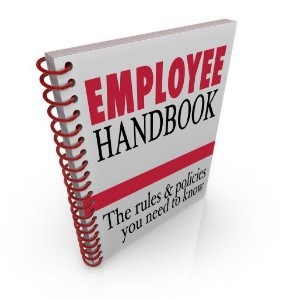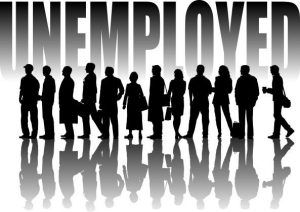Lessons Learned from the COVID-19 Pandemic
In the advent of the COVID-19 pandemic and the resulting state, federal, and health organizations mandates, employers found themselves operating in an environment of uncertainty where the legislative and economic landscape was continually changing. However, there are some essential business lessons that every employer or organization can extract from this event that can be a positive influence on the employee/employer relationship and creating the “New Normal” as we continue to assess the long-term implications of COVID-19.
Lesson 1 – Fear Management – Mental Health Support
For many individuals, this pandemic was their first experience with a world-wide event that created a rippling effect that had the potential to impact every aspect of their lives; health, finances, family dynamics, social interactions, and other basic freedoms.  Now, as states begin to reopen the economy and employees are recalled back to work, small business employers across the country find themselves contending with a level of employee anxiety that may seem overwhelming and, in some cases, disproportionate to the gravity of the situation. Many employers found themselves filling the role of emotional counselor for employees while carrying the weight of making critical decisions to ensure the survival of their businesses or organizations. Business leaders must accept the fact that employees who return to work may continue to need emotional support as they grapple with the day to day decisions that will create their new normal.
Now, as states begin to reopen the economy and employees are recalled back to work, small business employers across the country find themselves contending with a level of employee anxiety that may seem overwhelming and, in some cases, disproportionate to the gravity of the situation. Many employers found themselves filling the role of emotional counselor for employees while carrying the weight of making critical decisions to ensure the survival of their businesses or organizations. Business leaders must accept the fact that employees who return to work may continue to need emotional support as they grapple with the day to day decisions that will create their new normal.
Adding an Employee Assistance Program to your list of employee benefits can provide your employees with a professional counseling service that is equipped to help them address a variety of personal crises, including extreme fear or anxiety; helping to alleviate this burden from your shoulders.
Lesson 2 – Agility in Creating or Updating Policies and Processes
New federal laws and state ordinances addressing COVID-19 were enacted in a matter of weeks versus months. Many of these laws and ordinances continue to evolve in response to public feedback, available resources, and trends in the expansion of the virus.
As a small business owner, you may have found yourself confused by the flood of information and overwhelmed by the new  legislation; Families First Coronavirus Response Act (FFCRA), Payroll Protection Program, state-wide Stay at Home Orders, and CDC protocols to name a few. Employers were faced with the need to quickly create new handbook policies and forms or update existing polices to comply with the new state and federal regulations. Additionally, businesses have had to address gaps in company programs that have now become a necessary benefit to support safe workplace practices. For example, will you need to implement a new leave of absence (LOA) policy or enhance current LOA policies with additional paid or unpaid time off? Do you have a legally compliant employee handbook that provides comprehensive legal protection for your business or organization in other areas of employee management?
legislation; Families First Coronavirus Response Act (FFCRA), Payroll Protection Program, state-wide Stay at Home Orders, and CDC protocols to name a few. Employers were faced with the need to quickly create new handbook policies and forms or update existing polices to comply with the new state and federal regulations. Additionally, businesses have had to address gaps in company programs that have now become a necessary benefit to support safe workplace practices. For example, will you need to implement a new leave of absence (LOA) policy or enhance current LOA policies with additional paid or unpaid time off? Do you have a legally compliant employee handbook that provides comprehensive legal protection for your business or organization in other areas of employee management?
COVID-19 is a prime example of why the employee handbook is a necessary document for all businesses; and should be reviewed annually. Leaders must be prepared to adapt policies and processes in response to legislative, social, and business changes. This process could prove to be a daunting task without the assistance of a qualified human resources professional with the knowledge to create legally complaint and entity specific policies and HR tools that can be effectively communicated to all employees.
Lesson 3 – Furloughs, Layoffs, Recalls and Unemployment Claim Processing
The COVID-19 pandemic has had a devastating effect on the economy causing many businesses and non-profit organizations to initiate furloughs or permanent layoffs for over 20 million workers, driving the national unemployment rate to a record setting 14.7%. For many small business owners and leaders of non-profit organizations, this was their first experience with a mass layoff situation. These decision-makers were, in many cases, operating without a plan or a clear understanding of the  implications these actions would have for the business or the employees. Each decision affected employees’ health care coverage and other company benefits in different ways, causing employers to seek expert HR advice in understanding their options and potential outcomes; including how to properly recall employees back to work.
implications these actions would have for the business or the employees. Each decision affected employees’ health care coverage and other company benefits in different ways, causing employers to seek expert HR advice in understanding their options and potential outcomes; including how to properly recall employees back to work.
Additionally, employers across all industry segments were forced to manage and respond to an increased number of unemployment claims. Unfortunately, the number of fraudulent unemployment claims also increased driven by the desire to take advantage of the additional benefits provided by the federal government. Employers needed to be vigilant in submitting timely responses to the state unemployment bureau to prevent fraudulent charges to their unemployment account (which would impact their mutualized rate for 2021). Once again, specialized HR support was invaluable to many small business owners and non-profit organizations in safeguarding their unemployment funds while ensuring legitimate claims received prompt attention.
Lesson 4 – Most Important Lesson Learned
The COVID-19 pandemic has taught us that it can happen! – Absolute and total uncertainty can happen.
Read Part 2 for the conclusion of the blog












